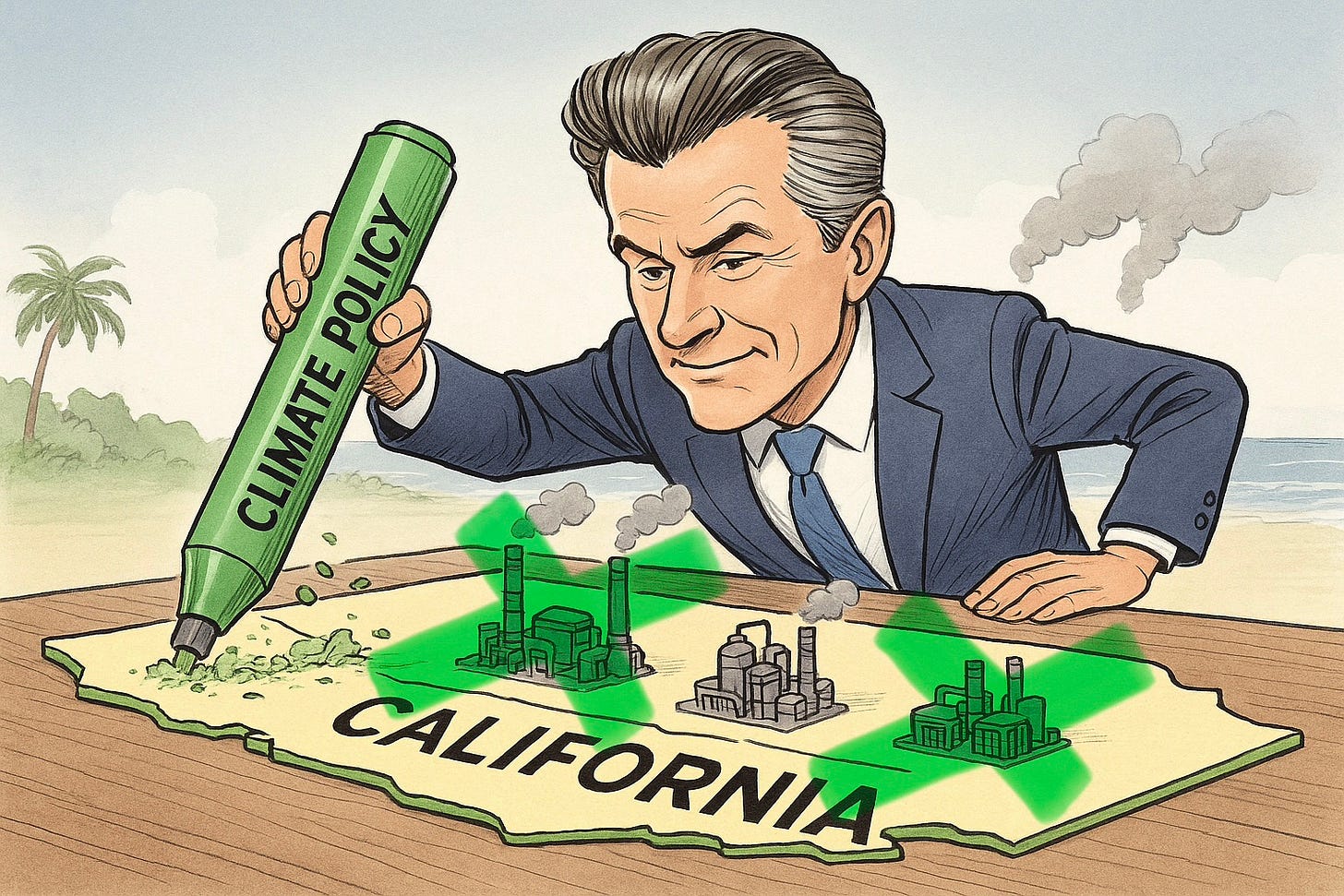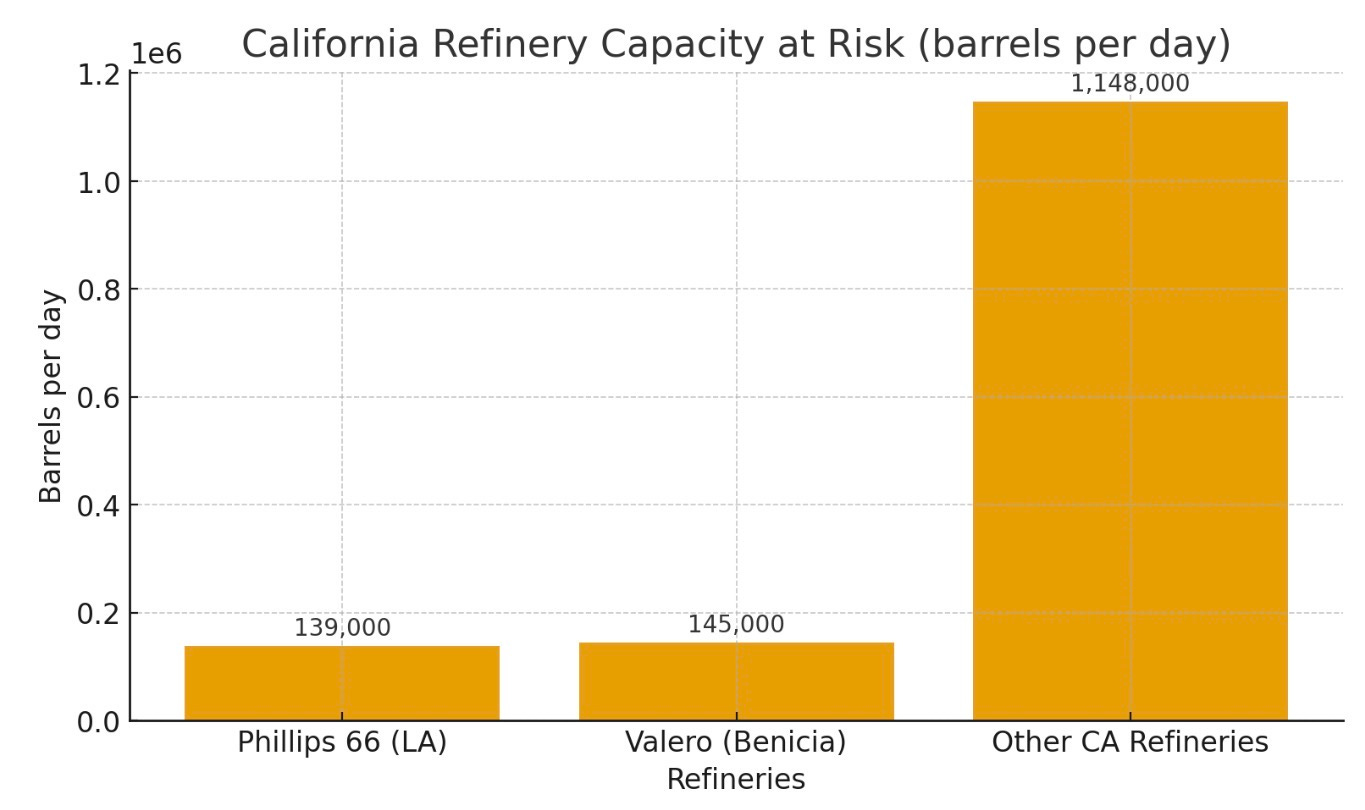Newsom’s Deliberate Strategy to Shrink California’s Oil Supply Is Working
Refinery shutdowns, new restrictions, and Sacramento’s mixed-up energy priorities are driving a self-inflicted surge in gas prices.
Afternoon content on So, Does It Matter? is primarily for our paid subscribers. Please join hundreds of others who have upgraded their membership, and read all of this — and get access to all of our content (40% is behind the paywall). You will get about 15% of this pst before being encouraged to sign up for a free one-week trial!
⏱️ 5-Minute Read
The El Segundo Refinery: A Blaze That Could Burn Wallets
Last week a major fire tore through Chevron’s El Segundo refinery, a cornerstone of Southern California’s fuel supply. The blaze, centered on the ISOMAX unit that produces jet fuel, forced multiple units offline. No injuries were reported, and crude units kept running, but production fell. The facility supplies roughly 20 percent of the region’s motor fuel and 40 percent of its jet fuel, so even a brief shutdown sends ripples through supply and prices.
Early estimates show a ten- to twenty-cent-per-gallon upward pressure on gasoline and about thirty-three cents on jet fuel. If repairs drag, experts at USC warn that prices could climb roughly thirteen cents each week the plant stays constrained.
Closures Turn a Shock Into a Squeeze
The fire lands as California’s refining base is shrinking. Phillips 66’s Los Angeles refinery is phasing out crude processing now and targets a full idle by late 2025. Valero’s Benicia refinery plans to close by April 2026. Together they account for about 17 percent of statewide capacity, according to federal energy data—a structural loss that amplifies every temporary outage….
The rest of this column digs into Gavin Newsom’s failed attempt to stop Valero’s Benicia closure, the contradictory state policies fueling California’s price crisis, and the hidden $200 million monthly hit to consumers.
Upgrading your subscription helps support my free, independent, and hard-hitting reporting on California politics.California’s fuel market is a true island. There are no pipelines from other states, and imported marine cargoes that meet the state’s unique fuel standards take weeks to arrive. That isolation keeps prices elevated and ensures that any refinery issue lingers longer than it should.
Keep reading with a 7-day free trial
Subscribe to FlashReport Presents: So, Does It Matter? On CA Politics! to keep reading this post and get 7 days of free access to the full post archives.




